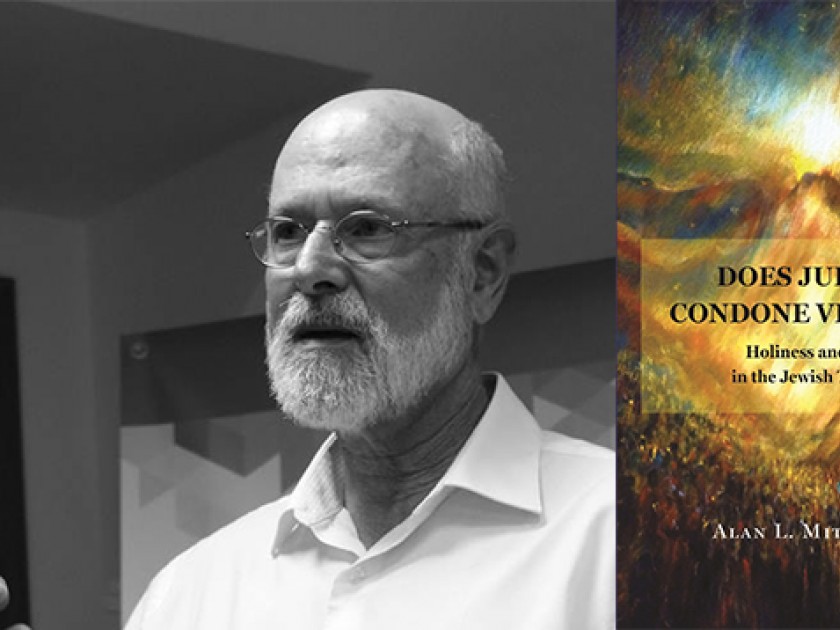
In advance of the 68th Annual National Jewish Book Awards ceremony on March 5th, 2019 (which you can buy tickets for here), Jewish Book Council is sharing short interviews with the winners in each category.
Alan L. Mittleman’s book, Does Judaism Condone Violence?: Holiness and Ethics in the Jewish Tradition, is the winner of the 2018 Dorot Foundation Award for Modern Jewish Thought and Experience in Memory of Joy Ungerleider Mayerson. In his book, Mittleman offers a powerful analysis of the concept of holiness and a rich philosophical exploration of some of the most challenging biblical texts involving acts of violence. The judges on the Modern Jewish Thought and Experience panel say: “This book was selected as winner … because of Mittleman’s exceptional ability to blend an intellectually rigorous analysis of biblical texts and philosophical concepts with accessible language and imagery. He succeeds in presenting a complicated and often misunderstood topic in a way that is engaging to a wide range of readers who may themselves be searching for a deeper understanding of holiness and morality, and who struggle with the religious violence we see all too often in our world today.”
Which three Jewish writers, dead or alive, would you most like to have dinner with?
Philo, Hasdai Crescas, and Isaac Breuer. I would like to dissuade Philo from his misogyny, find out just what Crescas thought about free will and determinism because his surviving views are so unclear, and let Breuer talk to his heart’s content about Kant and Schopenhauer.
What’s your favorite book that no one else has heard of?
I can’t say that I have a favorite book. Two books which made a huge impact on me as a tender undergraduate were the late Michael Novak’s The Experience of Nothingness and my teacher William A. Johnson’s The Search for Transcendence. Many years later, I got to know Michael, which was very satisfying. Bill Johnson is still, thankfully, a part of my life. I dedicated one of my books to him a few years ago.
Which Jewish writers working today do you admire most?
I very much like Allegra Goodman’s novels, as well as her father, Lenn Goodman’s, philosophical and scholarly work. I also draw a lot of intellectual stimulation from David Novak’s philosophical theology. They are all at the top of their game.
What are you reading right now?
Right now I’m reading a book by a British mathematician and philosopher, E. Brian Davies, called Why Beliefs Matter. It’s a set of reflections on the epistemology of science. Mostly it’s an argument against lingering traces of Platonism, especially in mathematics.
What are your greatest creative influences (other than books)?
The shower. Every good idea that comes to me seems to come first thing in the morning in the shower. Then it’s all downhill the rest of the day.
What do you hope readers will take away from your book?
It won’t surprise any reader to learn that there are often significant conflicts between our contemporary understanding of ethics and some of the very old moral norms embedded in the Bible. Hardest to understand are biblical texts that seem to underwrite violence for an alleged holy purpose. The relationship between holiness and ethics can be supportive — or it can be fraught. This book provides readers with models for thinking about that relationship and, I hope, defusing the potential for violence that religious texts still contain.